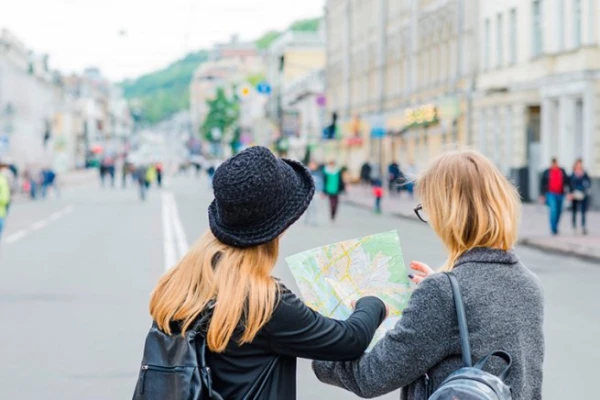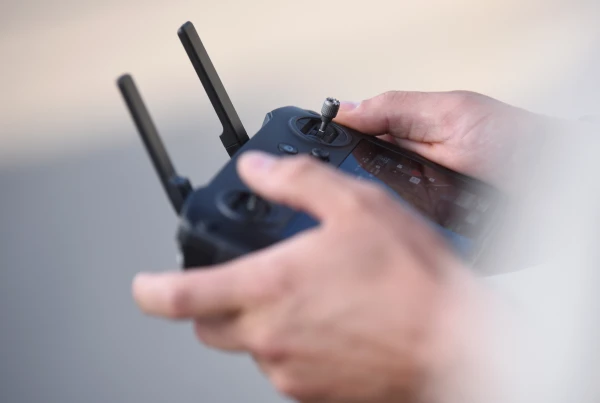
One wrong step — and your long-awaited trip can turn into serious problems. Remember these 8 safety rules that will protect you from the most common mistakes.
When on vacation, we often relax so much that we forget about the simplest safety rules. Hotelier, travel expert Tariel Gazhienko reminds us of eight rules that will help you avoid trouble in a foreign country.
1. Be Careful with Your Documents
Before your trip, make copies of all your documents and keep them separate from the originals. It is best to have them in both paper and electronic formats, which can be saved on a cloud service or on a mobile device — phone or tablet. In case your documents are lost or stolen, these copies can be invaluable. Of course, it’s better to hope that this won’t happen, but at least you will be prepared for such a scenario.
Also, make sure you have access to the contact information of the local embassy or consulate of your country. In case of passport theft or other important documents, this will help you resolve the issue quickly. Keep your documents in a safe place, such as in a pocket that closes with a zipper or in a special pouch hidden under your clothing.
2. Learn Local Customs and Laws
Before going on a trip, it is important to familiarize yourself with the basic rules of behavior and cultural peculiarities. Simple respect for local traditions can help avoid misunderstandings and conflicts. For example, in some countries, there are strict dress code rules in religious places, while in others, there may be restrictions on behavior in public places.
Moreover, the rules can change even within one country. For example, in Dubai, you can buy alcohol, but in other, stricter emirates, alcohol is not acceptable.
3. Ensure Your Safety While Traveling
Traveling in unfamiliar places requires special attention. First of all, avoid hitchhiking and risky modes of transportation, especially in regions with low safety levels. A simple piece of advice, but many have found it helpful in avoiding problems: do not get into private cars; instead, choose registered taxis or order cars through special apps.
If you plan to use public transport, try to study the routes and schedules in advance. Be cautious in crowded places where pickpockets may operate. If you rent a car, be sure to familiarize yourself with the traffic rules in the country. This will help avoid not only fines but also potential accidents.
4. Be Careful with Strangers
Traveling is also about communication. And this is its undeniable charm. However, it is important to remain cautious when interacting with strangers. Often, scammers take advantage of tourists' friendliness for their own benefit. Avoid offers of help from unfamiliar people, especially if they seem too insistent.
If someone offers you services, it’s better to first assess whether you actually need them. Try not to discuss your personal information — such as your place of residence, daily plans, or financial situation — with unfamiliar people.
5. Keep Your Valuables Safe
Do not carry large sums of cash and jewelry with you. Use bank cards if possible. Also, try to find places where you can exchange money without significant losses. It is also important to use hotel safes for storing important items.
If you need to carry valuables — such as an expensive camera — try to use bags that can be closed. Keep an eye on your belongings in crowded places and avoid leaving them unattended.
6. Don’t Forget About Health
Before leaving, be sure to find out about necessary vaccinations and medical supplies to take with you. Check whether your health insurance covers expenses abroad and whether special insurance is required for your destination country. Paying for medical assistance on-site will definitely be a serious blow to your budget.
7. Be Cautious with the Internet and Technology
Using the internet while traveling also requires caution. Avoid connecting to unsecured Wi-Fi networks, especially for financial transactions and sharing confidential information. Data can be intercepted by scammers, so install protective software on your devices.
Using VPN services will also help protect your data. Remember that using public computers in internet cafes can be unsafe, and try not to log into your social media accounts. Keeping your personal information secure will help you avoid data theft.
8. Always Have a Backup Plan for Emergencies
A pre-prepared plan for emergencies can significantly ease stress in case of trouble. Familiarize yourself with the locations of the nearest hospitals, police stations, and embassies of your country, and save them on your mobile device.
Create an action plan in case of lost documents, theft, or emergencies. Remember that having a prepared plan and readiness for various scenarios can save you in a difficult situation, help you maintain composure, and avoid panic.













